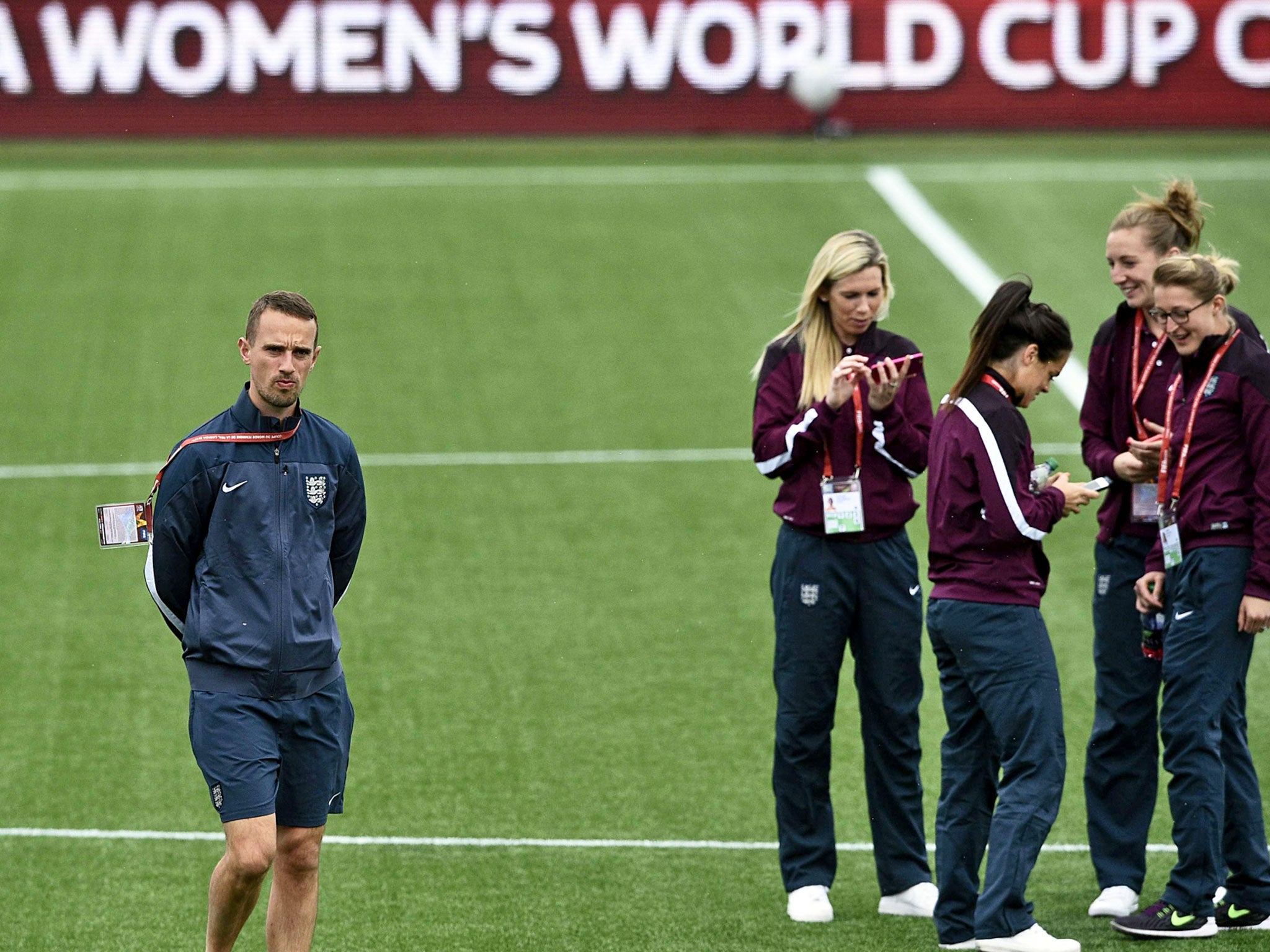Women's World Cup 2015: Mark Sampson the strong man hoping to continue his steep learning curve
New manager believes England’s flexibility and element of surprise will see off Norway in tomorrow’s last-16 tie

Your support helps us to tell the story
From reproductive rights to climate change to Big Tech, The Independent is on the ground when the story is developing. Whether it's investigating the financials of Elon Musk's pro-Trump PAC or producing our latest documentary, 'The A Word', which shines a light on the American women fighting for reproductive rights, we know how important it is to parse out the facts from the messaging.
At such a critical moment in US history, we need reporters on the ground. Your donation allows us to keep sending journalists to speak to both sides of the story.
The Independent is trusted by Americans across the entire political spectrum. And unlike many other quality news outlets, we choose not to lock Americans out of our reporting and analysis with paywalls. We believe quality journalism should be available to everyone, paid for by those who can afford it.
Your support makes all the difference.The jury remains out but, like Henry Fonda in Twelve Angry Men, Mark Sampson is beginning to talk them round. Unlike Fonda’s character in the classic movie, Sampson is arguing his case with deeds, not words, but he is doing it just as effectively.
On Monday he leads England into the most important match of his coaching career, a Women’s World Cup last-16 tie against Norway in Ottawa. It is the fourth time in 13 days he has faced such a challenge, and he hopes in the next fortnight for three more “most important matches of his career”, culminating in the final on July 5. Few expect that to happen, but given England’s steady improvement in Canada this last fortnight no one is ruling it out either.
Sampson, 32, was appointed 18 months ago to replace Hope Powell. Powell had done a magnificent job in raising the profile of women’s football, but her oft-prickly personality left her short of friends when she needed them, which was after a disastrous Euro’ 13 campaign that exposed managerial limitations.
The FA advertised for “a proven leader with a wealth of coaching experience… a successful and consistent track record of high performance in a professional environment,” and “a good understanding of International Football”. But come the interview process Sampson, who fitted none of those requirements, is understood to have “blown away” Dan Ashworth, the FA’s then director of elite development, now technical director.
Sampson was an unexpected choice. The manager of Bristol Academy women’s team he was 31, had been coaching adult football for less than six years, and his international experience extended to Welsh league minnows Taff’s Well. He was also male, and Welsh. This led to Lord Ouseley, chairman of Kick It Out, describing the appointment “an insult to women”.
If this affected Sampson he never let it show. There is a touch of Brendan Rodgers about him in his positivity and desire to be tactically clever. Like the Liverpool manager he is a big believer in working with the person as well as the player, and in creating teams that are attack-minded and flexible in terms of personnel and tactics.
This has been evident in the World Cup, with England playing three different formations and using all 20 outfield players. “We have been very adaptable over the qualifying campaign and [my] 18 months in charge,” he pointed out.
“One of the key reasons behind that was so we did not come to the tournament as a one-trick pony. We’ve had different stages of working with different systems, now is the time to bring it all together. Every team we play will know we can play a 4-3-3, 4-4-2 flat, a 4-4-2 diamond [and a 4-2-4-1 against France]. That gives us a real advantage.”
One issue with this is the uncertainty it provokes. The only players who can be sure of their place are captain Steph Houghton, midfield linchpin Fara Williams and goalkeeper Karen Bardsley. Sampson used to announce his team on the day of the game. That resulted in too many players expending nervous energy fretting over whether they would be in. So, at the players’ request, in Canada he is naming the team at least 24 hours earlier.
Many of the players have a lot more tournament experience than Sampson, who said: “Every decision we’ve made has been in connection with the players, the dream is that the players lead this team.”
There has, however, been some criticism of the way Sampson dealt with senior players – others heard that Casey Stoney had been deposed as captain before she did, and keeper Rachel Brown-Finnis found out on twitter she had been omitted from the squad to play Germany at Wembley; she quit soon after. Sampson, though, has brought back into the fold players who had been ignored or fallen out with Powell: , notably Lianne Sanderson Jodi Taylor and Katie Chapman.
There is evidence that the players back him. Neither team selections, nor the formations, have leaked before matches, which indicates they buy into Sampson’s belief in the importance of surprise. As ever with England managers the thing that really matters is results, but there are signs the “momentum” Sampson talks about is building.
But now comes the real test: England have never won a knock-out game at this level, and Norway will provide a stern examination.
Join our commenting forum
Join thought-provoking conversations, follow other Independent readers and see their replies
Comments